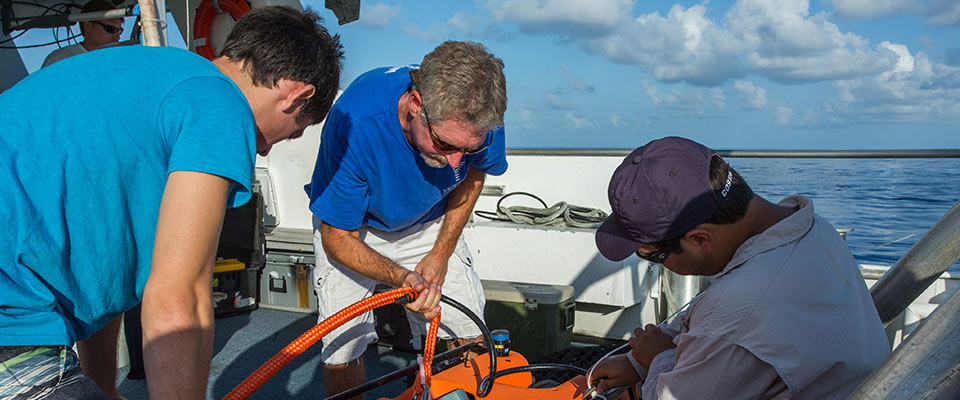
School of Earth, Environmental, and Marine Sciences Faculty Publications and Presentations
Document Type
Article
Publication Date
11-7-2019
Abstract
During aerobic oxidation of methane (CH4) in seawater, a process which mitigates atmospheric emissions, the 12C‐isotopologue reacts with a slightly greater rate constant than the 13C‐isotopologue, leaving the residual CH4 isotopically fractionated. Prior studies have attempted to exploit this systematic isotopic fractionation from methane oxidation to quantify the extent that a CH4 pool has been oxidized in seawater. However, cultivation‐based studies have suggested that isotopic fractionation fundamentally changes as a microbial population blooms in response to an influx of reactive substrates. Using a systematic mesocosm incubation study with recently collected seawater, here we investigate the fundamental isotopic kinetics of aerobic CH4 oxidation during a microbial bloom. As detailed in a companion paper, seawater samples were collected from seep fields in Hudson Canyon, U.S. Atlantic Margin, and atop Woolsey Mound (also known as Sleeping Dragon) which is part of lease block MC118 in the northern Gulf of Mexico, and used in these investigations. The results from both Hudson Canyon and MC118 show that in these natural environments isotopic fraction for CH4 oxidation follows a first‐order kinetic process. The results also show that the isotopic fractionation factor remains constant during this methanotrophic bloom once rapid CH4 oxidation begins and that the magnitude of the fractionation factor appears correlated with the first‐order reaction rate constant. These findings greatly simplify the use of natural stable isotope changes in CH4 to assess the extent that CH4 is oxidized in seawater following seafloor release.
Recommended Citation
Chan, E. W., A. M. Shiller, D. J. Joung, E. C. Arrington, D. L. Valentine, M. C. Redmond, J. A. Breier, S. A. Socolofsky, and J. D. Kessler. 2019. “Investigations of Aerobic Methane Oxidation in Two Marine Seep Environments: Part 2—Isotopic Kinetics.” Journal of Geophysical Research: Oceans 124 (11): 8392–99. https://doi.org/10.1029/2019JC015603.
Publication Title
Journal of Geophysical Research: Oceans
DOI
10.1029/2019JC015603


Comments
© 2019, American Geophysical Union. Original published version available at https://doi.org/10.1029/2019JC015603